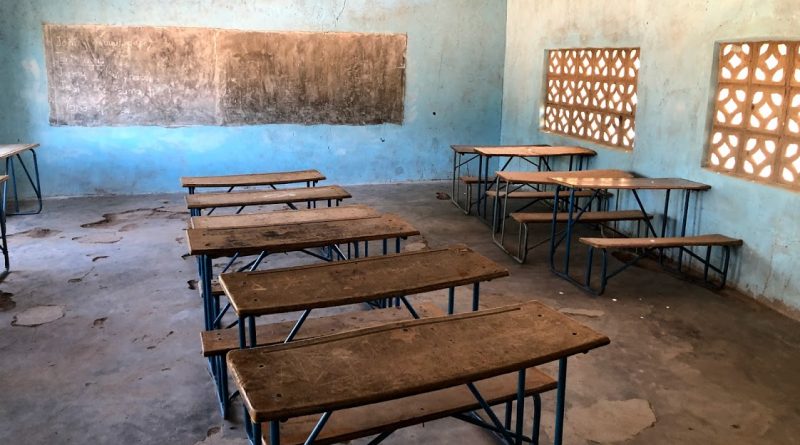Editor’s Reflection: Poverty Polarizes Zambia, Goodness And Greed Abound
Melody Conrad
Arts & Entertainment Editor
“Somebody is lying” started out as just a game among my UD cultural immersion group. The five of us noticed a few minor discrepancies in the stories of people in Lubwe, Zambia and joked that there was a full underlying plot where people banded together in factions and lied to get ahead. They cheated others out of money, used us to further their well-spun tales and all the while pretended to be our friends. People we could trust would dwindle to a relative few, we said, but those people would be beacons of light in our situation. For the rest, we would still love them, but we decided we would tread carefully in the future, entrusting little to their care.
We didn’t expect to be so close to the truth.

Poverty is a vicious beast that tears at the very fibers of a community. Located within the second poorest district in the nation, Lubwe has seen its fair share of desolation. The dirt road network is riddled with potholes, children wear the same clothing for a week at a time and fish, the primary source of income within the lakeside community, is declining sharply. Food insecurity is prevalent, and early marriages permeate the region.
Amid these challenges, two diverging mindsets develop: one bent on destruction, the other on good.
The first is cynical in nature, seeking to tear down or wrong the other. It focuses on greed and theft and took many forms during our time in Lubwe. Because the Americans have money, it says, they don’t need all of it and prices can be inflated. The item or service is paid for and then additional money is pocketed.
During our time in Lubwe, we discovered we had been overcharged for tailored apparel, bus fare, groceries, talk time and gas money. Allowing for exchange rates, it was at least $100.
The inflation we experienced crossed through numerous professions and relationship levels, and our group grappled with who we could trust during our time there. A longtime friend and affiliate of the UD immersion group was the primary culprit. Not only would he give absurd estimates for the price of items, but he would show up to group activities, snap photos without our consent and then post them on social media like an extension of the group. Beyond his actions, we discovered the teachers at nearby schools were using scholarship funds for vulnerable students for their own means instead. And one of the local priests? He was working with our so-called friend to pocket extra money too.

Is it any wonder, then, that these characteristics are passed down to the children? During our time with the kids, numerous items began disappearing. Spare change, first-aid kits, headphones, sunglasses.
“So much of what they do is directly a product of that environment,” said Miranda Melone, the group leader.
There’s great truth in that. The children thought taking things was normal; it’s how they were raised. They were good kids, and they thought there was nothing wrong with swiping a few things here or there. The Americans had the money, the resources and they liked to remind us of our ATM status.
The kids were perfectly comfortable coming up and asking for free handouts, dubbing them “remembrances.” Remembrances could take on a variety of forms, but they mainly consisted of apparel, notebooks, writing implements and toys. I was asked multiple times, for instance, to leave my shoes or watch with a certain child. Their culture told them that ‘mzungus’ (literal translation: the whites) had items in abundance and should give freely.
Children are the future lifeblood of a community, and when they’re raised in an environment that supports theft, their conscience will be clear as they go with the crowd. Everybody else does it.
However, I want to stress this again: these were good kids. We did so many things together, and I developed close bonds with a few special children. Bright, a sweet boy in the fifth grade, would stick by my side and watch out for me. If the other kids got too rough or tried to steal from me, he had my back. We had all kinds of adventures together, ranging from swimming to sleepovers. We played frisbee, he taught me how to defend myself in a fight and we danced around the yard until dark.

And then there was Mwaba, who would walk me around the town and teach me the local language. He was only in primary school, but we would run around and go see the sunset and play soccer together. He had a playful, silly side, and was the first one I met when I arrived in Lubwe.
These kids gave me hope for the community. We came in to support and love the area, and these children were primary beneficiaries and distributors of that love. We reached across social boundaries in the region, spending time with them in solidarity and friendship. As mzungus from America, we worked to bridge the divide between our two worlds, drawing each other closer together.
In the end, it wasn’t about the amount of money we had to give or what the community chose to do with it. We gave ourselves to Lubwe, practicing a ministry of accompaniment that can’t be quantified by dollars. There’s wholeness in that.
Photos courtesy of Melody Conrad

